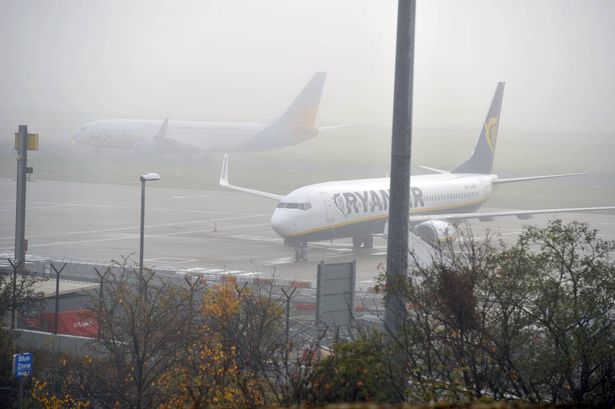The recent travel chaos at Manchester Airport has left passengers stranded, frustrated, and questioning the airport’s operational capabilities. Reports from Inrix, a leading online traffic reporting system, indicate significant delays, with departures experiencing up to 80-minute hold-ups and arrivals facing even longer waits of up to 100 minutes. This situation has caused a ripple effect, disrupting travel plans, causing missed connections, and leaving passengers in a state of uncertainty. The airport authorities attribute the delays to a confluence of factors, including staff shortages, increased passenger volumes, and ongoing security concerns. However, many passengers and industry experts argue that these issues are symptomatic of deeper systemic problems within the airport’s management and infrastructure.
The staff shortages, particularly within security and baggage handling, have been a recurring theme in Manchester Airport’s recent struggles. The airport, like many others across the globe, has been grappling with the aftermath of the pandemic, which saw significant workforce reductions. While passenger numbers have rebounded, the airport has struggled to recruit and train staff at the same pace, leading to understaffing and increased waiting times. This issue is further compounded by the ongoing security protocols and enhanced checks, which require more personnel and time. Passengers report long queues snaking through the terminals, with security checkpoints often overwhelmed by the sheer volume of travelers. Baggage handling has also been significantly impacted, leading to lost luggage, delayed baggage delivery, and further frustration for passengers.
The increased passenger volume during peak seasons, particularly during school holidays and bank holiday weekends, exacerbates the existing operational challenges. The airport’s infrastructure, designed for pre-pandemic passenger numbers, struggles to cope with the current influx of travelers. This leads to overcrowding in terminals, long queues at check-in desks, and further delays in security processing. The situation becomes even more chaotic when combined with flight delays and cancellations, leading to further congestion and a domino effect of disruptions. Passengers often find themselves trapped in overcrowded terminals with limited access to information and assistance.
Underlying these immediate operational challenges are deeper systemic issues related to the airport’s management and planning. Critics argue that the airport’s management has failed to adequately anticipate and address the post-pandemic surge in passenger numbers. The slow pace of recruitment and training, coupled with a perceived lack of investment in infrastructure upgrades, has left the airport ill-equipped to handle the current demand. This lack of foresight and preparedness has resulted in a cascade of problems, impacting not only passengers but also airlines and other airport stakeholders. The airport’s reputation has suffered considerably, with many travelers expressing their dissatisfaction and vowing to avoid Manchester Airport in the future.
The impact of these delays extends beyond the immediate inconvenience to passengers. Businesses reliant on air travel are also affected, with employees experiencing disruptions to their work schedules and companies facing potential financial losses. The tourism industry is particularly vulnerable, as delayed and cancelled flights can deter potential visitors and damage the region’s reputation as a travel destination. Furthermore, the delays have a negative impact on the local economy, with businesses operating within the airport, such as restaurants and shops, experiencing reduced footfall and revenue.
To address these challenges, Manchester Airport has announced a series of measures, including increased recruitment efforts, improved staff training programs, and investment in new technology to expedite security processing. However, these initiatives will take time to implement and their effectiveness remains to be seen. In the meantime, passengers are advised to arrive at the airport well in advance of their scheduled departure times, check their flight status regularly, and pack essential items in their carry-on luggage in case of baggage delays. Ultimately, a long-term solution requires a comprehensive review of the airport’s operational procedures, a significant investment in infrastructure upgrades, and a renewed focus on customer service. Only then can Manchester Airport hope to regain the trust of its passengers and restore its reputation as a reliable and efficient travel hub.














